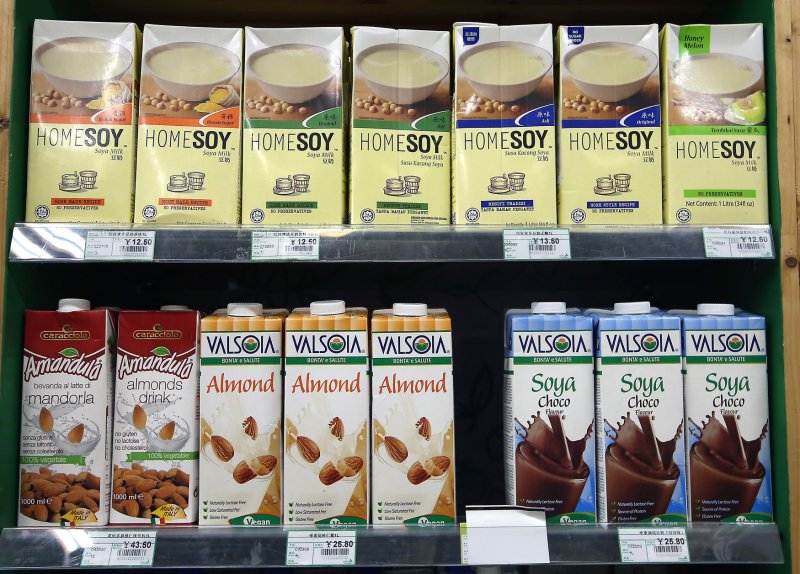Products using soybeans are sold at a store in Beijing on May 7. Soybeans are now the target of tariffs. File Photo by Stephen Shaver/UPI |
License Photo
Sept. 25 (UPI) -- In an apparent attempt to influence Iowa voters, the Chinese government ran a four-page advertising supplement in a prominent Iowa newspaper featuring articles about how the trade war will harm the local economy.
The insert from China Daily, the government-owned media company, appeared in Sunday's Des Moines Register, days after China called off trade talks with the United States, and the day before Trump administration levied its third round of tariffs on $200 billion of Chinese goods.
Headlines in the "China Watch" ad include "Book tells of Xi's fun days in Iowa" and "Duel undermines benefits of trade."
"I'm not surprised [China] is targeting Iowan voters," said Grant Kimberly, the director for market development at the Iowa Soybean Association. "They see that Iowa is a swing state [and] they did this to try and sway voters to put some pressure back on the Trump administration."
Though Iowa voted for Donald Trump in the 2016 presidential election, it went to Barack Obama in the two previous elections. The state has been hit particularly hard by the Trump's escalating trade dispute with China.
After the Trump administration levied its first round of tariffs on Chinese imports in July, China retaliated with its own tariffs on American goods -- mostly agricultural exports, including soybeans. Iowa is the nation's leading soybean producer. A new report by Iowa State University economists estimates that tariffs will cost the state $1 billion to $2 billion in gross domestic product this year.
Besides highlighting the economic impact the trade war is having on the American soybean industry, calling it "the fruit of a president's folly," the Chinese ad included articles highlighting various Chinese industries and cultural icons.
"They're trying to portray China in a positive light," Kimberly said. "They're trying to present themselves that China is a rising country and should be treated with equality and respect."
But Kimberly doubts the ad will have much effect on Iowa voters. What will ultimately decide voter opinion is the long-term economic impact the tariffs bring, he said.
"People here have patience, but farmers are getting nervous," Kimberly said. "If this isn't resolved in the next year, it's going to hurt. Both sides need to come back to the table and dialog. The negotiation process has got to get started."
Experts predict China may be waiting until after the November midterm elections to resume trade negotiations.















